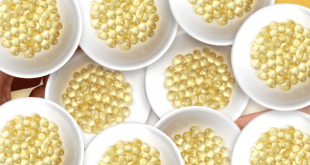The Ministry of Education (MoE) is committed to helping its students develop a passion for STEM subjects—science, technology, engineering, and math.
Considering that 60% of students are expected to enroll in the STEM stream, this makes sense.
He recently stated, “STEM education in schools is very important and has many benefits.”
One of these advantages is that it fosters critical thinking, problem-solving, and creative thinking in kids.
In addition to giving them the abilities needed to succeed in a technologically advanced society, it also fosters creativity by encouraging them to explore, try new things, and think creatively.
By linking classroom learning with real-world applications, STEM activities in education foster cooperation and teamwork, reflecting the real-world workplace and bridging the theory-practice gap. true.
“It also prepares students for a variety of career opportunities in fast-growing fields such as technology, engineering, healthcare and renewable energy,” the Education Ministry stated.
He added, “The Ministry of Education has implemented several proactive measures in an effort to increase the interest and participation rate of students in the STEM field,” and that this was in keeping with the Malaysian government’s 2013–2025 Education Plan.
Increasing student enthusiasm through innovative teaching strategies and curriculum reinforcement, improving STEM instructors’ competencies, and raising public, parent, and student knowledge of STEM are all part of the goal.
“In order to increase awareness about STEM among students, parents, community and public, programs and campaigns have been continuously carried out in the form of entertainment and fun,” she stated.
At the school, local, state, and federal levels, initiatives have been implemented to give students from a variety of backgrounds equitable opportunities.
According to the ministry, extracurricular activities provide pupils with the chance to showcase their STEM abilities and constant encouragement.
This year, almost 16,000 students from all over the nation took part in a total of 13 national and international STEM competitions and activities.
University-run programs, other ministries including the Ministry of Science, Technology, and Innovation (Mosti) and the Ministry of Natural Resources, Environment, and Climate Change (NRECC), as well as outside organizations, are not included in this.
“More recently, the ministry’s students successfully won two gold medals and two bronze medals at the World Robot Olympiad (WRO) Friendship Invitational Tournament, in Odense, Denmark, which took place from September 21 to 24. “announced the Ministry of Education.

He continued by saying that he constantly works to create human capital that is knowledgeable and skilled to enter the STEM stream.
“The Ministry of Education’s plan includes enhancing the caliber of academic and training programs, guaranteeing more equal learning results, utilizing emerging technologies, and fortifying governance in order to generate adaptive STEM talent that matches future needs.
She stated, “This satisfies the requirements of the National Science, Technology and Innovation Policy (DSTIN) 2021–2030.”
According to the ministry, efforts are always being made to enhance the educational process in schools.
Enhancing teaching and learning (PdP) activities both inside and outside of the classroom is one of the strategies used to pique students’ interest and persuade them to pursue the STEM stream in higher education.
It is urged of students to apply inquiry-based, project-based, and problem-based learning in practical settings.
In accordance with the Standard Secondary School Syllabus (KSSM), the scientific practical test for the Sijil Pelajaran Malaysia (SPM) examination has also been reintroduced by the Ministry of Education as of 2021.
“The implementation of this practical test aims to attract students’ interest in scientific subjects through practical or experimental PdP methods,” he stated.
The PdP STEM Implementation Guide, scientific research resource materials, mathematics inquiry materials, inquiry approach modules through the Mastery of Scientific Process Skills Level II Primary School, and scientific resource materials for mathematics are just a few of the PdP support materials that the ministry has created on its own.


